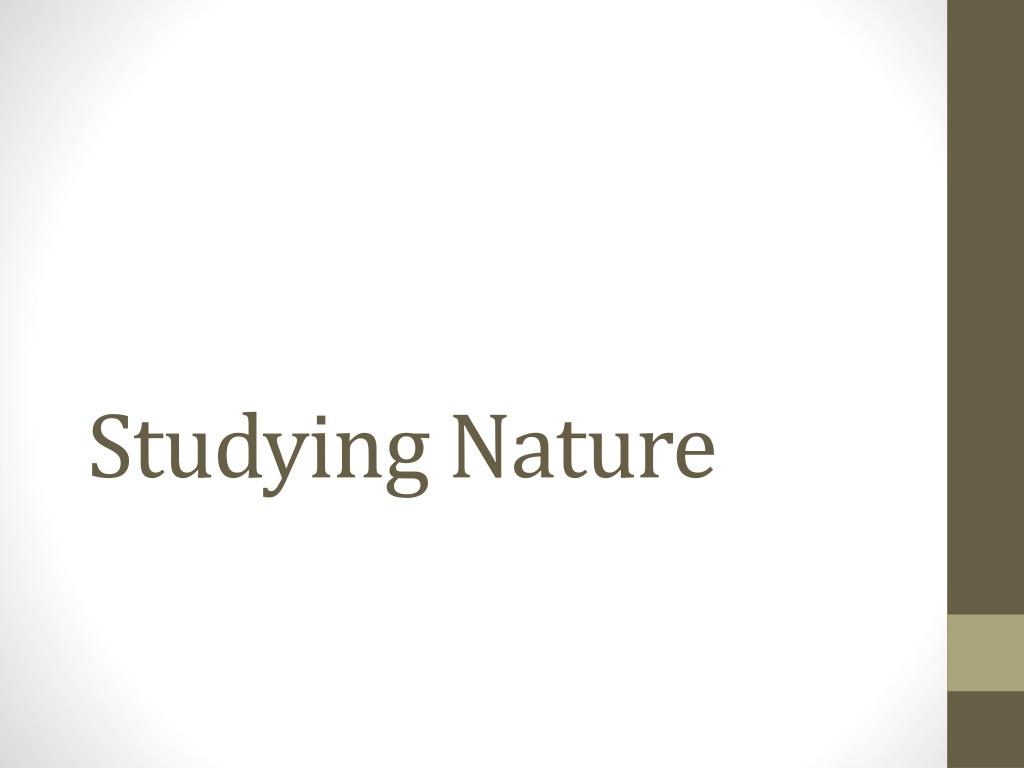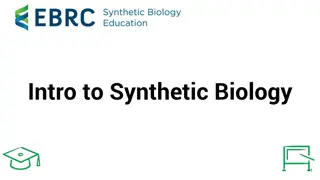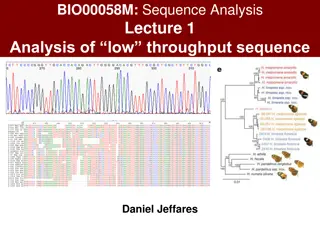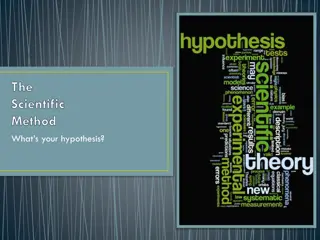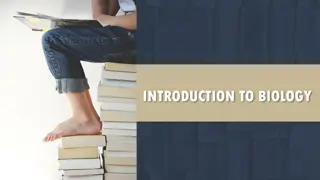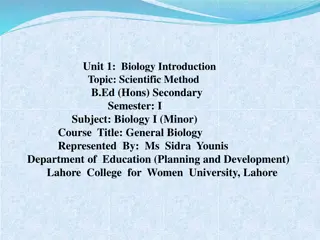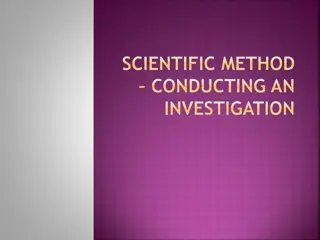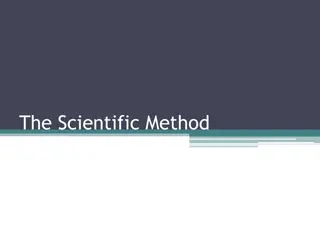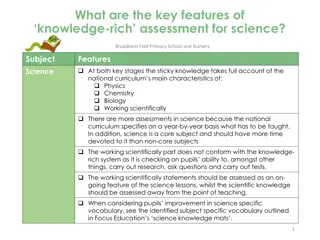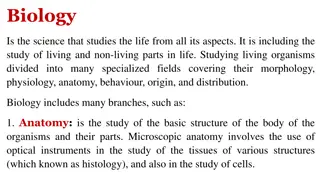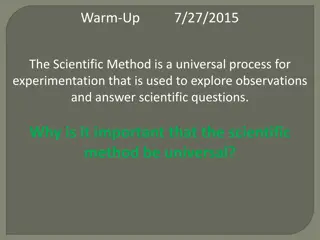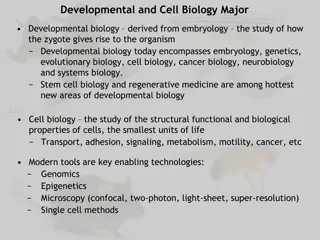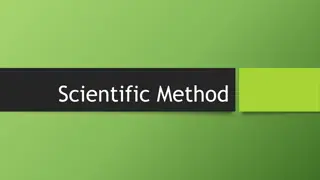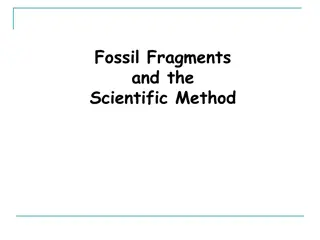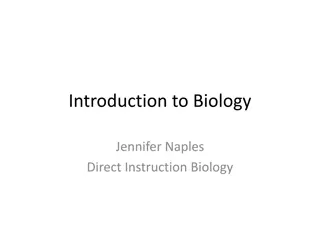Understanding the Scientific Method in Biology
This content covers various aspects of the scientific method in biology, including testable statements, recorded observations, reasoning methods, and a practical application in a study on snake mimicry. It also discusses lab report expectations and compares theories to hypotheses.
Download Presentation

Please find below an Image/Link to download the presentation.
The content on the website is provided AS IS for your information and personal use only. It may not be sold, licensed, or shared on other websites without obtaining consent from the author. Download presentation by click this link. If you encounter any issues during the download, it is possible that the publisher has removed the file from their server.
E N D
Presentation Transcript
Which of the following 6 statements are NOT testable by the scientific method? 1. Increasing numbers of deformities such as the extra limbs that have been noted in many frog populations in North America are caused by infection by trematodes (parasitic flatworms). People with strong religious beliefs live more meaningful lives. People are more likely to survive cancer if they have a positive attitude. Humans and chimpanzees diverged from a common ancestor that lived 5 7 million years ago. Corn seedlings grow more quickly when people talk to them. If you live a good life, you will be rewarded with an eternity in Heaven. 2. 3. 4. 5. 6.
Fill in the blank: Recorded observations are called ________ Data Through _____________ reasoning scientists derive generalizations based upon a large number of specific observations. Through _____________ reasoning logic flows from the general to the specific. Inductive Deductive A _______________ is a tentative answer to a well-framed question. Hypothesis No amount of experimental testing can _________ a hypothesis, because it is impossible to test _____ experiments to falsify them. Prove All
Scientific Method in Action Mimicry in Snakes Title: The effect of coloration (mimicry) of snake on predator attacks. Hypothesis: If the king snake lives in the same region as a coral snake, then predators will not attack the king snake because mimicry will protect the king snake. IV: Coloring of Snake (mimicry) Brown Coloring (control) Red, black & white ring (experimental group) DV: predator strikes/attacks Constants: both types of coloring found in all test areas, same size artificial snake, same length of time, same number of snakes of each color in all test areas, artificial snakes made of the same material, both types present during the same season
Lab Report / Poster Expectations Title link IV to DV Introduction Background with Hypothesis Materials and Methods Results discuss variables (experimental design), data table, graphs, data analysis Conclusion Literature Cited See Handout for details
Compare and Contrast Theory Hypothesis Broader in scope General enough to generate many hypotheses that can be tested Supported by a massive body of evidence May need to be modified or refuted based upon new information Narrow focus Very specific question is being asked/tested Supported or disproved by a few experiments
Review choose one of the testable hypotheses from this list and explain how you would test it (record your response in your journal.) 1. Increasing numbers of deformities such as the extra limbs that have been noted in many frog populations in North America are caused by infection by trematodes (parasitic flatworms). 2. Humans and chimpanzees diverged from a common ancestor that lived 5 7 million years ago. 3. Corn seedlings grow more quickly when people talk to them.
Evidence that theories change Five-kingdom theory of biological diversity was proposed in 1968. Five-kingdoms replaced Linnaeus s original two-kingdom system Now we are moving to a three-domain system with at least five-kingdoms (maybe more in the future?) Why are we moving to 3 domains?? Increased information from careful comparison of structure and function (i.e. DNA comparisons)
Is all real science hypothesis- driven and experimental? Discovery (Inquiry) Science Modeling NO!
Homework: Collect pill bugs or stink bugs over the weekend so we can do an experiment on Tuesday. Read and summarize chapter 2 for 9/5 Read and summarize chapter 3 for 9/6 Clicker Review time!
